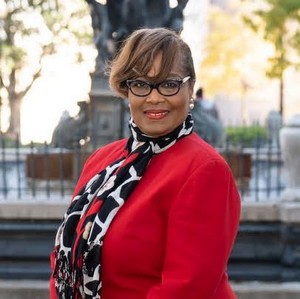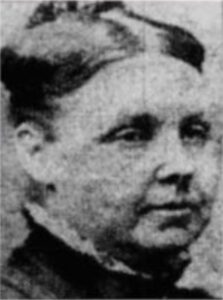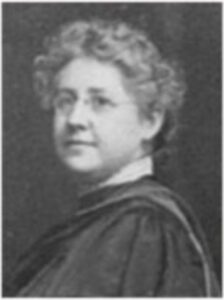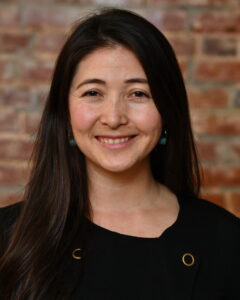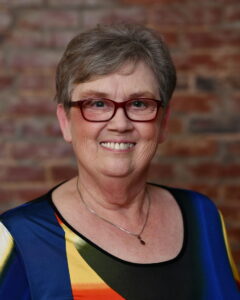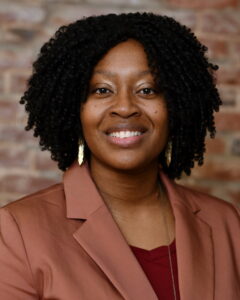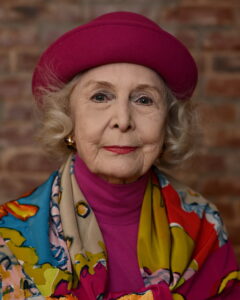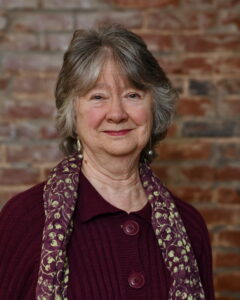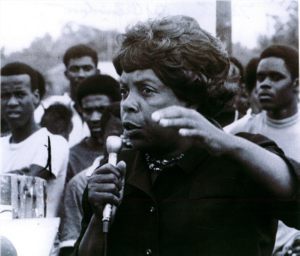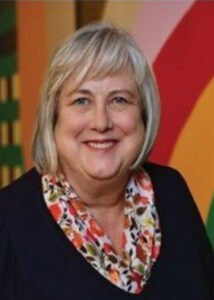
WOMEN OF ACHIEVEMENT
2023
DETERMINATION
for a woman who solved a glaring problem despite widespread inertia, apathy or ignorance around her:
Barbara Boucher
Many people in our community are hungry every single day. And that’s not okay with Barbara Boucher.
Some statistics report that 19% of our local population suffers from food insecurity. Some say that 116,000 children and their families fall into that category. A recent study showed Memphis as number three in the nation for food insecure seniors. Whatever the stats, that’s way too many.
A long-time volunteer in food ministries for the Church of the Holy Communion, in 2010 Barb Boucher began helping prepare food for a monthly Sunday for the More than a Meal program at Grace St. Luke’s Episcopal. In 2012, she inherited the position of team leader. Barbara and her team haven’t missed a Sunday since.
And that was just the beginning.
In 2019, Barb began cooking for women surviving life on the streets and overcoming addiction through the Lisieux Community. She included with each summer meal frozen cloths to cool the neck as there’s no air-conditioning on the street.
In 2020 Covid struck and food ministries shut down. Constance Abbey, an intentional community working to meet immediate needs of the unhoused population near downtown, phoned. “Our clients are hungry,” they said. So Barb went into action. First, she personally prepared 300 sack lunches. Next, she developed Covid procedures to allow volunteers to safely prepare and deliver 80 – 100 sack lunches daily along with hot meals for dinner. This program continued until other food ministries re-opened in June 2021. She also continued cooking for Lisieux.
When community lockdown ended and other food ministries re-opened in June 2021, Barb’s individual work at Lisieux became part of her long-standing work through Church of the Holy Communion’s food ministry now called Recover Food, Feed Hope. Each aspect of the ministry draws different volunteers. Currently more 65 volunteers assist and the number is steadily growing.
Their work is supported by donations of cash and food. Individuals, faith groups, businesses all kick in. And since 2020, through contact with Clean Memphis, gleaning has had a huge impact.
In the present day, this biblical practice means recovering otherwise wasted food and feeding the hungry. Barb and team initially used gleaning for meals for Constance Abbey. It is now an essential part of the ongoing network.
In the summer of 2021 over 7,000 pounds of produce were collected twice a week at the Agricenter Farmer’s Market by a small crew of gleaners from Temple Israel and Beth Sholom synagogues. After Jewish Family Services provides for their community, the remainder comes to Barb’s team.
This produce can’t wait.
Depending on the product, they decide what to do next. First chop, then cook or freeze. Picture crates and bushels of waiting, wilting, warming produce. By the end of last season, everyone had blisters from peeling and was tired of tomatoes, cantaloupe, and okra!
Now that word is out, grocery stores, restaurants, college cafeterias and sometimes even large private weddings and parties send food to the gleaners. No food is turned down, even on the weekend. Exotic spice donations have led to culinary research and creative recipes. Calls are made and food is delivered.
The standard for each meal is that it must be delicious enough to serve to your own family. A favorite comment from one client is that Barb’s banana pudding tastes as good as her mama’s, a high compliment, indeed.
In addition to prep work and delivery, Barb’s efforts include recruiting and scheduling both individuals and institutions to help. Sometimes it’s through people she knows and sometimes it’s cold calls but clearly her tactics work She now has a large interfaith network striving to end hunger. And instead of making calls, she gets calls asking how to help.
How did Barb choose this volunteer activity? She says that love of cooking is her gift from God. The fifth of six siblings of a working mother, she was in charge of preparing whatever was left out each morning for their evening meal. When her three sons were young and active in youth groups, she loved cooking for them and their friends .
What else does Barbara do? She loves to bake and regularly makes birthday cakes for people in hospice. And of course, she spends time with her precious grandchildren. Her intention is to make sure that everyone has enough to eat. If it were up to the determined Barbara Boucher, no one would go hungry.


